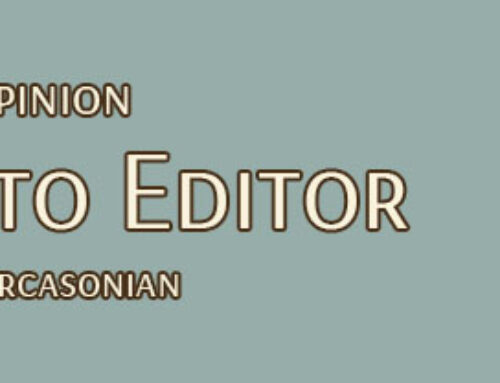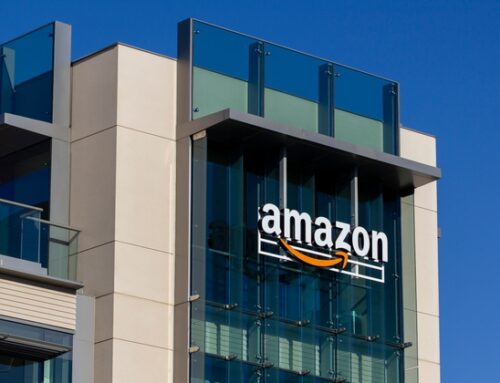This Philadelphia Council Member Wants To Stand Up to Trump By Investing in Mobility For t
April 22, 2025
Mobility justice advocates across the country were thrilled when news broke that the city of Philadelphia would extend its groundbreaking Zero-Fare pilot, automatically sending unlimited free fare cards to nearly 25,000 of the city’s poorest residents — and potentially, setting a new bar for transit subsidy programs in America. For Councilmember-at-large and minority whip Nicolas O’Rourke, though, that celebration was quickly followed by a bold question: how do we go even bigger?
We sat down with O’Rourke to talk about what it will take to make free transit a reality for more of the City of Brotherly Love — and why, as a member of the Working Families Party and a pastor, he sees investing in mobility for the poorest among us as both a moral and political must. And along the way, he offers a preview of forthcoming legislation that could expand Zero Fare permanently, and a passionate argument for how subsidizing transit can help cities stand up to Trump.
The following interview has been edited for clarity and length
Streetsblog: Tell me a little bit about why getting the Zero Fare program renewed was such an important priority for you.
O’Rourke: Zero Fare is a program that really addresses the challenges of what it means to be poor in the poorest big city in the USA. In Philadelphia, you have nearly half the city renting, and it’s an old city where the streets weren’t really built for driving. And so you have a lot of folks who rely on transit who are either working class or working poor, as well as folks who need housing. But when we received the budget that was proposed this year for FY26, we realized pretty swiftly that the pilot program had been zeroed out entirely.
As a minster and pastor of a local church, I wrestle a lot with values. I recognize justice, but also I recognize what does and what does and what does not make for justice. And for me, if I’m going to be not just a minister in the church, but a minister in the city, a minister in the state, then the service I want to provide is to help measurably and materially improve the lives of working people every single day.
For me, it is not acceptable for us to have a program that allows for the poorest people in the poorest in big city to have access to its transit, and then say, “Oh, we’re just not going to continue that anymore.” … It makes me feel good that our team was able to focus and to be able to deliver this for the people.
Streetsblog: You put out an announcement on social media seeking stories about how the Zero Fare pilot impacted people’s lives. What did you hear back? And what has the reaction in your community been since they’ve heard that it would continue to be available to them, at least for another year?
We heard dozens and dozens of stories … We heard from folks who literally said [Zero Fare] saved their life. We heard folks who said that they were able to go to work in the morning and to eat dinner with their kids at night. We heard folks talk about how they were able to get to doctor’s appointments, and the really granular, day-to-day, normal things that that human beings in a city need.
There is a passage within the Christian gospels that says, “whatever you do for the least of these, my siblings, you’ve done unto me.” … In our office, we say that we want to treat the people’s needs as holy, because they are. And so it was very affirming for us to hear the praise that came after [this pilot was renewed] and the mayor was able to reverse course — not just from the people, but also from my colleagues who recognize its value and have since affirmed it, especially as we started talking about building on this.
Streetsblog: Yeah, let’s talk about how you’re planning to build on this victory. Are you hoping to expand this program to more Philadelphians in the future? Can you envision a day where all transit is free, and everyone — not just the least privileged among us — is able to access universal basic mobility in this way?
I mean, in theory, yeah; I’ve love for transit to be free entirely. I also think that before we make it free for folks who can afford it, I want it to be free for those who can’t.
On Thursday, April 24, we’re going to introduce something we’re calling the Philadelphia Transit Access Fund. This legislation would essentially set aside 0.5 percent of the city’s general fund each year for transit access for the poorest in our city — those who are at or below 150 percent of the federal poverty line — essentially, taking Zero Fare and making it a part of our city code. [The legislation] would also limit administrative overhead costs for the program to 15 percent of the yearly sum.
By the way, [that 0.5 percent] matches the funds that we’ve set aside for what’s known as the Housing Trust Fund to keep the poorest people in the city housed. So if we’re willing to [devote] half of a percentage to housing security, and we put another half a percentage towards making sure that folks who don’t have access to mobility have access to transit for free, then we are providing the poorest people in the poorest big city in America some place to stay and some way to go.
I have already begun my vote-whipping on it and I’m getting a lot of interest from my colleagues as it relates to us bringing it to pass about it coming to pass. But that one percent baked into the code in the general fund every single year — this is what we mean by building on Zero Fare. It’s about what it means to serve “the least of these.”
Streetsblog: That‘s a bold policy, especially in an era when transit and the whole idea of providing services for the disadvantaged is under attack in Washington. What would you say to other city leaders who are afraid to make moves like these in this political moment?
I am feeling stronger by the day that in the political climate we are currently living in — and that I believe will be the norm for some time — cities have got to stand on their own to expect to fend for themselves.
It’s inconvenient, and it’s a very, very tall challenge. But so many states in these yet-to-be-United States get a lot of funding from the federal government, and we are [already] seeing major funding cuts on a number of different levels. That obviously has trickle-down effects on municipalities.
I think it is high time for states and cities to see what their rainy day funds are looking like, to look at what their reserves are, and to begin to try to govern a way that does not rely on a ruling party that, without logic or reason — other than, maybe, cruelty and domination — has no desire to support those who are in need of the most support.
I’m thinking about how cities can become refuges — sanctuaries, if you will allow the term — for those who have been pushed to the margins of society: queer folk, women, people of color, those who have migrated here in recent years, and the poor. [Poverty] exists in all of those demographics that I just listed, and those of us [in government] are entrusted with the responsibility for shaping the environment that allows for their thriving.
I think we shouldn’t be afraid to advocate often and across the board for programs and policies that prioritize the poor — that make things free, that socialize programs. [We shouldn’t] be afraid of the word “socialism.” if I dare even go that far — because whether you like the term or not, if you are even remotely left of center, you are now a communist in the eyes of the far right wing. No matter what you do, if you care about other people, they are going to lambast you. So why not be shameless in our prioritization of “the least of these”?
I’m in Philly, and the southeast of Pennsylvania is the economic engine of the entire Commonwealth. Our state senate — and up until recently, even the state house — has been Republican-controlled. The necessary funding that we need to provide quality education and access to transit has been cut off at its knees year after year after year, by a party that just refuses to commit to or prioritize anything that comes out of this region. And in some cases, that ain’t got nothing to do with the party. … And so it’s important, I think, for us to begin advocating not around party lines, but around what’s needful. I hope that people can take that from Philadelphia.
Search
RECENT PRESS RELEASES
Related Post




